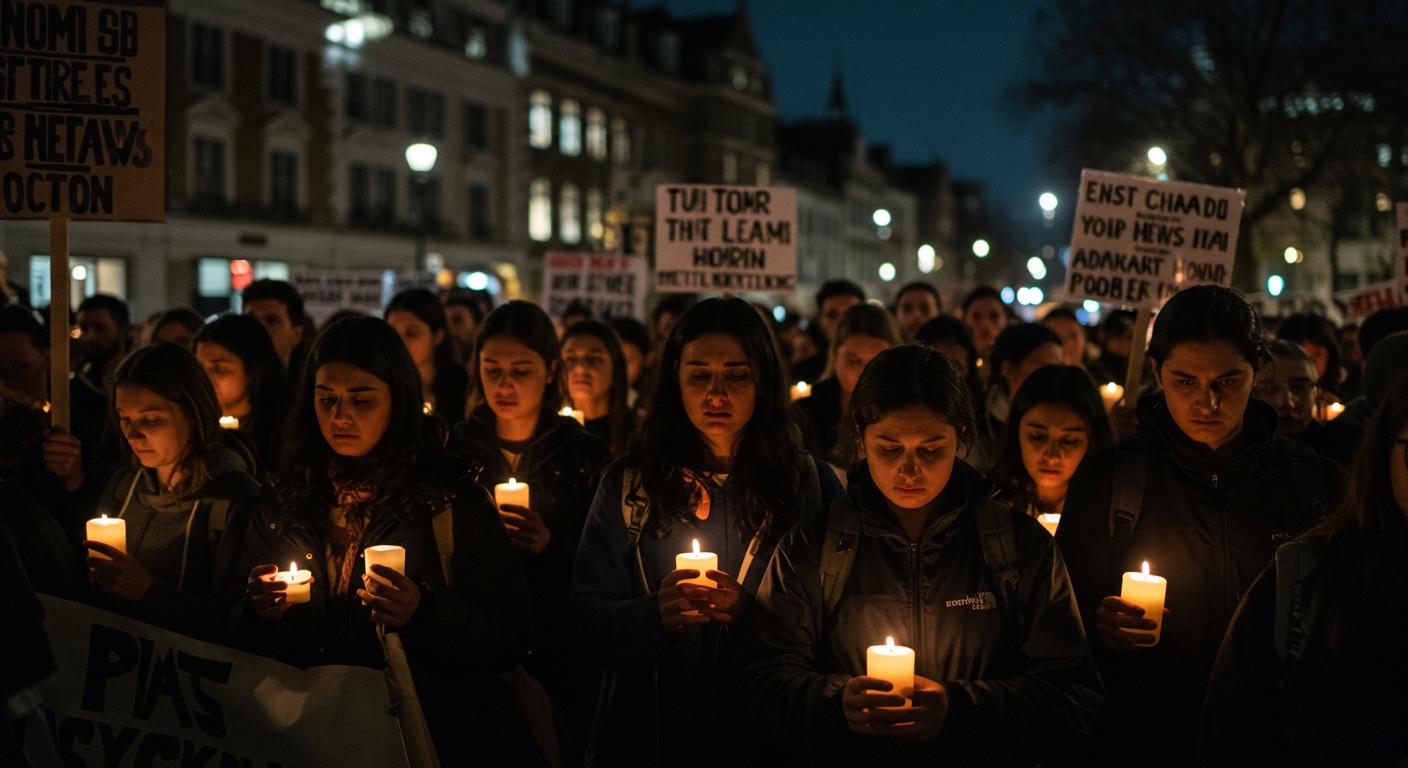London, UK – Mourners gathered in London on Sunday, June 29, to pay tribute to Zara Aleena, a young woman whose tragic murder has reignited urgent conversations about the safety of women across the United Kingdom.
The vigil, a poignant and solemn occasion, was led by Ms. Aleena’s aunt, Farah Naz. Speaking to attendees, Ms. Naz described her niece as a woman who embodied “fairness and justice,” highlighting the values Zara held dear.
The event drew figures from public life, including Health Secretary Wes Streeting, who serves as Zara Aleena’s local Member of Parliament, and justice minister Alex Davies-Jones. Both politicians used the platform to address those gathered, urging them to maintain pressure on the government to deliver on its commitments to combat violence against women. They specifically referenced the government’s ambitious target to halve violence against women and girls within the next decade.
Despite acknowledging that some progress has been made in tackling this pervasive issue, Ms. Naz delivered a stark assessment of the current situation. She stated unequivocally that women in the UK are “still not safe,” a powerful declaration underscoring the persistent fear and vulnerability many experience in their daily lives.
Remembering Zara Aleena and Demanding Change
The vigil commenced with a moment of quiet reflection, allowing participants to mourn Ms. Aleena’s loss and contemplate the broader implications of gender-based violence. Following this, attendees embarked on a walk, tracing a path from the site where Ms. Aleena was murdered to her home, a symbolic journey highlighting the intrusion of violence into spaces that should be sanctuaries.
Organisers of the vigil took the opportunity to provide an update on developments and ongoing challenges since Ms. Aleena’s death brought renewed scrutiny to the issue of women’s safety. They noted several areas where improvements have reportedly occurred, including increased scrutiny and reform within the probation system, enhancements to emergency call handling procedures, and more effective utilisation of offender risk assessment tools.
Persistent Challenges and Systemic Failings
However, their assessment painted a picture of an issue far from resolved. Organisers stressed that a misogynistic culture continues to underpin institutions and permeate the streets, creating an environment where women’s safety is fundamentally compromised. They argued that prevention efforts remain secondary to reactive responses, suggesting that systemic focus is skewed towards dealing with the aftermath of violence rather than proactively stopping it.
A critical point of concern raised was the continued underfunding of specialist services, particularly those led by and for black and minority women. These organisations often provide culturally sensitive and vital support to some of the most vulnerable individuals but struggle to secure adequate resources.
The organisers also highlighted the precarious nature of women’s safety advocacy, noting its vulnerability to the cyclical nature of political attention. They warned that commitments and progress can be easily stalled or reversed depending on the prevailing political climate and priorities.
Furthermore, persistent issues within the justice system itself continue to impede efforts. Organisers pointed to probation and prison services that remain significantly under-resourced and overstretched, impacting their ability to effectively manage offenders and contribute to public safety.
A Call for Enduring Commitment
The vigil served as a powerful reminder that despite public outcry and political promises, the fundamental safety of women in the UK remains a pressing and unresolved crisis. The collective presence of mourners, community members, and political figures underscored the widespread demand for tangible, lasting change that goes beyond institutional reforms and tackles the root causes of violence and inequality.
The message delivered on Sunday, June 29, was clear: the memory of Zara Aleena must spur not just reflection, but sustained, comprehensive action to ensure that the declaration that women in the UK are “still not safe” becomes a statement of the past.





